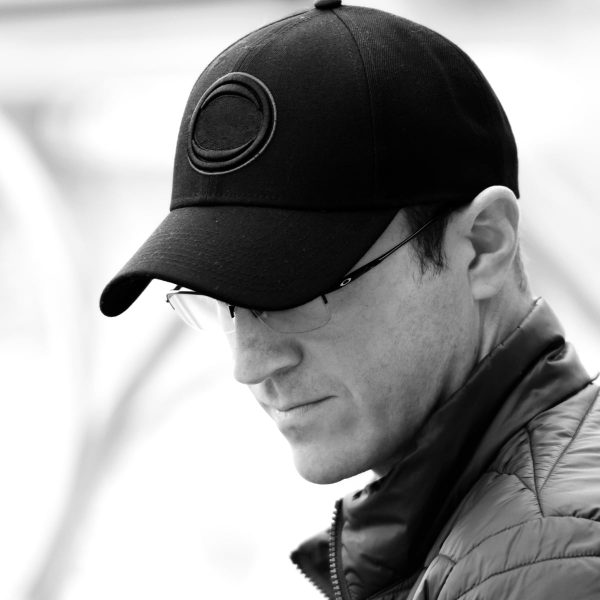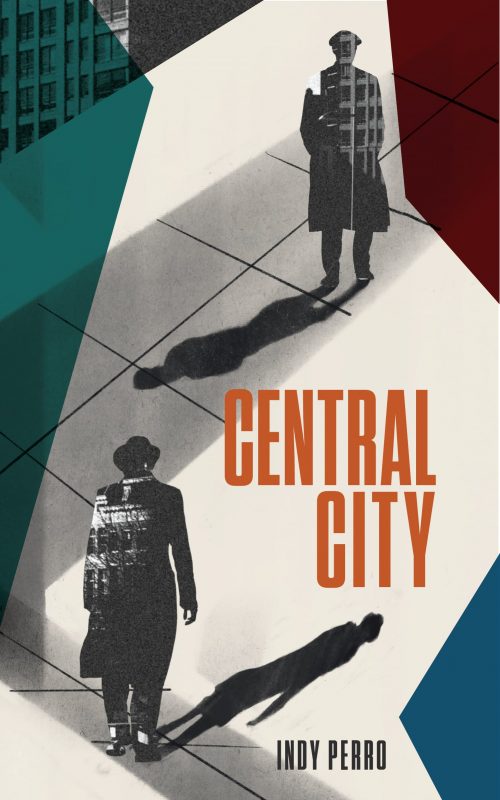Prologue
February 12, 1977
THE MAN’S SHADOW spread across the snow, tinted gold by porchlight.
He pulled his keys from his pocket, fumbled with them, dropped them into the snow next to the stoop, picked them up, shook them off, and shoved the correct key into the lock. The door creaked on its hinges and slammed into the frame with a high-pitched smack.
The crisp, cold air from outside stressed the smell of fried butter and boiled milk, leftover mac and cheese, and scram- bled eggs still crusted on pot and pan. The man, entranced by the living room, leaned against the door, conserving his strength. Frayed paper ornaments, the remnants of a family project years before, decorated a plastic Christmas tree that sat in darkness next to the cold television, a make- shift parent and babysitter. A calendar, fourteen months behind schedule, claimed it was still December.
The naked bulb in the entryway clicked and buzzed, and the man stepped forward, stumbling into the coat rack and falling to the floor in a pile of cotton, wool, polyester, and nylon. He pushed himself to his knees, grabbed the rack, set it upright, and used it to steady himself. For a few beats, the man and the rack rocked to the rhythm of the man’s breathing.
He released his reluctant partner, dropped to one knee, and began to sort the coats and hang them by their collars. He picked up his youngest son’s and mumbled to himself. “This one cost a pretty penny.”
The man held the jacket into the light and looked at the dried blood streaking down the front and along the right sleeve. The man dabbed at the brown stains. He turned the coat over and felt the tear below the arm, black-and-white feathers floating from his fingers.
“Adam. Get your ass down here.”
The boy, waiting and watching, stepped out of the shad- ows at the top of the stairs. “Yes, sir.”
“What the hell is this?” “That’s my new coat.”
“I know what it is. I bought the damn thing. What is this shit here?” The man waved the coat, bunched in his fist, toward the stairs.
“Blood.”
“I know what dried blood looks like. I’ve seen enough in my time.”
The man threw the coat at his son, and its arms fanned out in flight, gliding the garment to the stairs, not quite halfway to the top. Three feathers listed in the coat’s wake. The man stumbled forward and braced himself on the railing near the bottom step. “What the hell is blood do-
ing on it?”
The older brother spoke from the doorway of their shared room. “It wasn’t his fault. Some kids were picking on him. I took care of it.”
“You stay out of this, boy. You didn’t take care of shit. This little bastard ruined his new coat.”
The older brother stepped to the top of the stairs and pushed his younger brother behind him, and the man, finding his balance, took the stairs two at a time.
Four photographs in matching white oak frames hung on the wall along the staircase. One showed the two broth- ers, laughing in an embrace, on the hood of a squad car one sunny summer afternoon. Another, a black-and-white image of potential bliss, showed the man and a woman at the altar on their wedding day. The woman looked like the younger boy, short and solid, fair-skinned with blond hair, and a dimple in the right cheek. The third photograph showed the entire family in a photographer’s studio, clear- ly posed in front of a woodland backdrop, their expressions captured between irritability and the word cheese.
The final photograph showed the woman standing next to an easel with a painting of a little brown dog running toward a cabin through a swaying field of tall grass, not the work of a professional. The lines wavered, and the perspective tilted, bunching the cabin to one side, but the colors, like the woman, caught the eye.
The woman wore a veteran’s association t-shirt stained with seven colors of paint, and she laughed into the camera, a happiness larger than life, with just the faintest yellowing on the outer edge of her left eye. The same painting hung obscured by the tree in the living room downstairs.
When the man reached the top of the stairs, the distance between the last step and the top nullified the three inches of height that differentiated father and son. The two shared the same coloring, the same eyes, the same smile, and, in that moment, the same squint and tightened jaw. “When I was a kid, we didn’t get new clothes. Do you know what I’ve done to provide for you? Do you know?”
The older brother turned away from the sour smell of stale liquor.
The backhand rolled the older boy off his feet and into the hall.
The man towered over the youngest. “You’re just like your mother. You don’t know what you got, what you want. You think I’m made of money. You think every- thing’s about you.”
The blows knocked the boy to the floor and kept coming. The man stood over him, held him down with his knee, and used both hands. Fury so blinded the man he never saw the older boy’s fist, but the strike to the temple knocked him into the rail at the top of the stairs and his drunken disequilibrium toppled him downward. The man half-slid and half-rolled. The tools of his trade jutting from his belt caught and slowed his descent. The light from the entryway flickered off the shield, bronze against the navy-blue uniform.
The older boy turned his brother to look at his face. The younger boy opened his eyes. “This ain’t nothing, kid. You might look a little tough for a while, but you’ll live.”
The boy’s eyes turned away from his older brother and looked into the darkness beyond. The nightstick caught the older boy between the elbow and the shoulder of his right arm, and the bone popped.
He cried out, fell to the left, and held his arm close to his body as he slid away from his father, inching down the hall. The father pointed the club at his oldest son. “You’re next.”
The younger boy covered his head with his hands and tucked his knees into his chest.
After the fifth strike of the club, the older brother screamed, “You’re going to kill him. He’s just a kid.”
The man didn’t seem to notice. He kept swinging and swinging, his eyes glazed over, and saliva collected at the corners of his mouth.
The younger boy’s hands reached out to his father, trying to stop the blows, fumbling with the objects on his belt.
The older boy pushed himself to his feet with his good arm and threw himself into the man, reaching for a weapon. The pain on his right side pierced his brain, and he never heard the shot.
The man slumped against the railing, his head tucked into his chest, and his arms, nightstick in one hand, lay lifeless at his sides. Neither boy moved, consciousness lost beneath the blows, and if it weren’t for the pool of blood growing beneath the man, they may all three have simply slept.
Frozen and framed within the fourth photograph, the woman watched through eyes squinted in laughter, head tilted back, silent.


 Listen on Audible
Listen on Audible

 audible
audible